COVID-19
Court to hear challenge to Saskatchewan’s Covid gathering limits
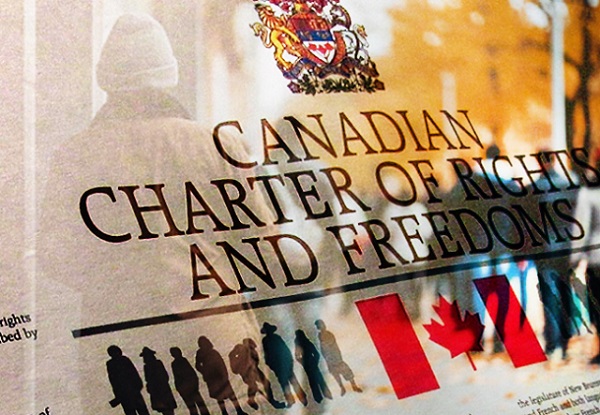
News release from the Justice Centre for Constitutional Freedoms
The Justice Centre for Constitutional Freedoms announces that the Saskatchewan Court of Appeal will hear the appeal of Jasmin Grandel and Darrell Mills on Tuesday, February 6, 2024, at 10 AM CT, at 520 Spadina Crescent East, in Saskatoon. Ms. Grandel and Mr. Mills challenge Saskatchewan’s former ban on outdoor gatherings of more than 10 persons as an unjustified violation of their Charter freedom of peaceful assembly and other Charter rights and freedoms.From March 17, 2020, until July 11, 2021, Saskatchewan imposed various prohibitions on outdoor gatherings, including limiting them to only 10 people. At the same time, Saskatchewan allowed more than 10 people to meet indoors. Jasmin Grandel and Darrell Mills attended various peaceful outdoor protests in 2020 and 2021, resulting in hefty fines for violating Public Health Orders.At the time, Jasmin Grandel was a kinesiology student at the University of Regina, with a young son in kindergarten. She was concerned with the inconsistency of the Public Health Orders and with their detrimental psychological and economic effects. She feared that the Orders would negatively impact small businesses, leading to unemployment and poverty for families.Darrell Mills, who also participated in peaceful outdoor protests, is a resident of Saskatoon with 30 years of experience in mechanical construction. He is certified in Mask Fit Testing and trained in supplied air breathing systems. He was concerned about the negative health impacts of improper mask use.While outdoor gatherings were restricted to a maximum of 10 persons for certain periods, the province permitted numerous public indoor gatherings that far exceeded 10 persons. At the same time, Saskatchewan Chief Medical Health Officer Dr. Saqib Shahab stated that “outdoor gatherings while observing physical distancing are better than indoor gatherings.” On June 5, 2020, then-Regina Police Chief Evan Bray, along with many other officers, attended a large Black Lives Matter rally in Regina with hundreds of people, thereby violating existing public health orders and garnering significant media attention. At the time, Saskatchewan Premier Scott Moe said, “…my assumption is that the law enforcement officials have used their judgment with respect to this particular rally…” Dr. Shahab called it a “special event,” and no one was charged with breaching public health orders. Six months later, numerous Saskatchewan residents were charged and prosecuted for violating public health orders because they, like participants in the Black Lives Matter rally, had peacefully protested outdoors.In April 2021, lawyers provided by the Justice Centre filed a constitutional challenge to the restrictions on outdoor gatherings, on behalf of Ms. Grandel and Mr. Mills. The Originating Application challenges these restrictions for violating the Charter freedoms of thought, belief, opinion and expression, association and peaceful assembly. The Application also suggests that pro-freedom protests against government lockdown policies have been especially targeted by law enforcement.At trial, an eminent infectious disease specialist provided expert evidence that outdoor transmission of Covid was negligible, where physical distancing could be practiced and where single-day gatherings with no indoor component could take place. The government did not present evidence that Covid was transmitted at outdoor gatherings. Instead, they relied on the ‘precautionary principle’ put forward by its public health expert that lockdown measures should be taken even if “cause and effect” had not been fully established scientifically.“It appears that lockdown harms were not considered by the government or by the court, when applying this ‘precautionary’ principle. Neither the Saskatchewan government nor the lower court wanted to take precautions against the physical, mental, social, financial and economic harms that lockdowns inflicted on people,” stated John Carpay, president of the Justice Centre. On September 20, 2022, Justice D. B. Konkin of the Court of King’s Bench of Saskatchewan upheld the government’s restrictions on outdoor gatherings as justified violations of Charter freedoms. Justice Konkin assessed only the breach to freedom of expression, representing only one of the various Charter rights alleged to be breached by the Applicants. In his decision, he wrote, “In a state of public health emergency wreaking severe havoc on the health of Saskatchewan residents, Sask [sic] was burdened with the immense task of balancing multiple interests.”Andre Memauri, lawyer for Ms. Grandel and Mr. Mills, stated, “Our infectious disease specialist made it clear at trial that the outdoor transmission of Covid-19 was negligible, much like every other respiratory illness in history. There was no basis for the Saskatchewan government to impose greater restrictions on people’s rights to assemble, express themselves and associate outdoors as opposed to indoors. The rule of law means that laws should be enforced equally, but the Saskatchewan Government encouraged and supported Black Lives Matter protests outdoors in large numbers while ticketing people who six months later protested the violations of their Charter freedoms.”
COVID-19
Tulsi Gabbard says US funded ‘gain-of-function’ research at Wuhan lab at heart of COVID ‘leak’
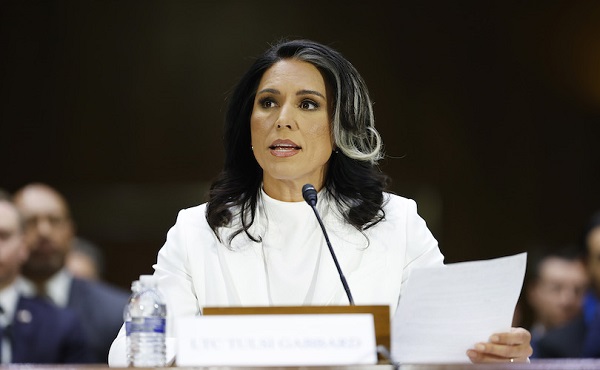
From LifeSiteNews
The director of National Intelligence revealed gain-of-function ties to US funding, which could indicate that the US helped bankroll the supposed COVID lab leak.
In this segment of a remarkable interview by Megyn Kelly, Director of National Intelligence Tulsi Gabbard discusses the current Intelligence Community (IC) research into the origin of the SARS-CoV-2 pandemic (aka, COVID-19).
Gabbard talks about the U.S. government funding of “gain-of-function” research, which is a soft sounding phrase to describe the weaponization of biological agents.
Gabbard notes the gain-of-function research taking place in the Wuhan lab was coordinated and funded by the United States government, and the IC is close to making a direct link between the research and the release of the COVID-19 virus.
Additionally, Gabbard explains the concern of other biolabs around the world and then gets very close to the line of admitting the IC itself is politically weaponized (which it is but would be stunning to admit).
COVID-19
Study finds Pfizer COVID vaccine poses 37% greater mortality risk than Moderna
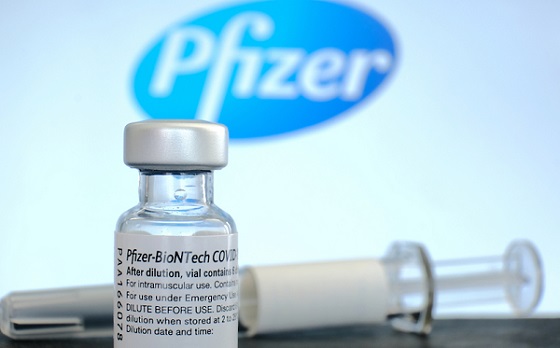
From LifeSiteNews
A study of 1.47 million Florida adults by MIT’s Retsef Levi and Surgeon General Joseph Ladapo finds significantly higher all-cause mortality after Pfizer vaccination compared to Moderna
A new study of 1.47 million Florida adults by MIT’s Retsef Levi and Surgeon General Joseph Ladapo finds significantly higher all-cause, cardiovascular, and COVID-19 mortality after Pfizer vaccination.
The study titled “Twelve-Month All-Cause Mortality after Initial COVID-19 Vaccination with Pfizer-BioNTech or mRNA-1273 among Adults Living in Florida” was just uploaded to the MedRxiv preprint server. This study was headed by MIT Professor Retsef Levi, with Florida Surgeon General Dr. Joseph Ladapo serving as senior author:

Study Overview
- Population: 1,470,100 noninstitutionalized Florida adults (735,050 Pfizer recipients and 735,050 Moderna recipients).
- Intervention: Two doses of either:
- BNT162b2 (Pfizer-BioNTech)
- mRNA-1273 (Moderna)
- Follow-up Duration: 12 months after second dose.
- Comparison: Head-to-head between Pfizer vs. Moderna recipients.
- Main Outcomes:
- All-cause mortality
- Cardiovascular mortality
- COVID-19 mortality
- Non-COVID-19 mortality
All-cause mortality
Pfizer recipients had a significantly higher 12-month all-cause death rate than Moderna recipients — about 37% higher risk.
- Pfizer Risk: 847.2 deaths per 100,000 people
- Moderna Risk: 617.9 deaths per 100,000 people
- Risk Difference:
➔ +229.2 deaths per 100,000 (Pfizer excess) - Risk Ratio (RR):
➔ 1.37 (i.e., 37% higher mortality risk with Pfizer) - Odds Ratio (Adjusted):
➔ 1.384 (95% CI: 1.331–1.439)
Cardiovascular mortality
Pfizer recipients had a 53% higher risk of dying from cardiovascular causes compared to Moderna recipients.
- Pfizer Risk: 248.7 deaths per 100,000 people
- Moderna Risk: 162.4 deaths per 100,000 people
- Risk Difference:
➔ +86.3 deaths per 100,000 (Pfizer excess) - Risk Ratio (RR):
➔ 1.53 (i.e., 53% higher cardiovascular mortality risk) - Odds Ratio (Adjusted):
➔ 1.540 (95% CI: 1.431–1.657)
COVID-19 mortality
Pfizer recipients had nearly double the risk of COVID-19 death compared to Moderna recipients.
- Pfizer Risk: 55.5 deaths per 100,000 people
- Moderna Risk: 29.5 deaths per 100,000 people
- Risk Difference:
➔ +26.0 deaths per 100,000 (Pfizer excess) - Risk Ratio (RR):
➔ 1.88 (i.e., 88% higher COVID-19 mortality risk) - Odds Ratio (Adjusted):
➔ 1.882 (95% CI: 1.596–2.220)
Non-COVID-19 mortality
Pfizer recipients faced a 35% higher risk of dying from non-COVID causes compared to Moderna recipients.
- Pfizer Risk: 791.6 deaths per 100,000 people
- Moderna Risk: 588.4 deaths per 100,000 people
- Risk Difference:
➔ +203.3 deaths per 100,000 (Pfizer excess) - Risk Ratio (RR):
➔ 1.35 (i.e., 35% higher non-COVID mortality risk) - Odds Ratio (Adjusted):
➔ 1.356 (95% CI: 1.303–1.412)
Biological explanations
The findings of this study are surprising, given that Moderna’s mRNA-1273 vaccine contains approximately three times more mRNA (100 µg) than Pfizer’s BNT162b2 vaccine (30 µg). This suggests that the higher mortality observed among Pfizer recipients could potentially be related to higher levels of DNA contamination — an issue that has been consistently reported worldwide:

The paper hypothesizes differences between Pfizer and Moderna may be due to:
- Different lipid nanoparticle compositions
- Differences in manufacturing, biodistribution, or storage conditions
Final conclusion
Florida adults who received Pfizer’s BNT162b2 vaccine had higher 12-month risks of all-cause, cardiovascular, COVID-19, and non-COVID-19 mortality compared to Moderna’s mRNA-1273 vaccine recipients.
Unfortunately, without an unvaccinated group, the study cannot determine the absolute increase in mortality risk attributable to mRNA vaccination itself. However, based on the mountain of existing evidence, it is likely that an unvaccinated cohort would have experienced much lower mortality risks. It’s also important to remember that Moderna mRNA injections are still dangerous.
As the authors conclude:
These findings are suggestive of differential non-specific effects of the BNT162b2 and mRNA-1273 COVID-19 vaccines, and potential concerning adverse effects on all-cause and cardiovascular mortality. They underscore the need to evaluate vaccines using clinical endpoints that extend beyond their targeted diseases.
Epidemiologist and Foundation Administrator, McCullough Foundation
Please consider following both the McCullough Foundation and my personal accounton X (formerly Twitter) for further content.
Reprinted with permission from Focal Points.
-

 International13 hours ago
International13 hours agoPentagon Salivates Over ‘Expensive’ Weapons While China Races Into Future With Iron Grip Over Cheap Drone Tech
-

 Crime1 day ago
Crime1 day agoCanada Blocked DEA Request to Investigate Massive Toronto Carfentanil Seizure for Terror Links
-

 Business22 hours ago
Business22 hours agoTop Canadian bank ditches UN-backed ‘net zero’ climate goals it helped create
-
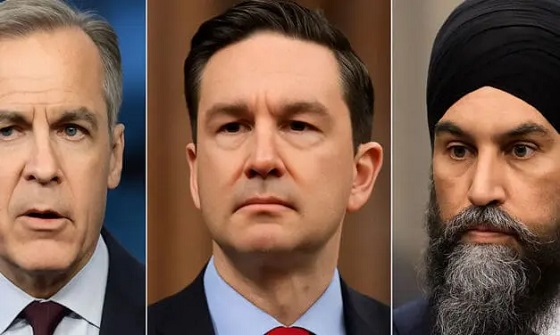
 2025 Federal Election2 days ago
2025 Federal Election2 days agoThe Liberals torched their own agenda just to cling to power
-

 Business2 days ago
Business2 days agoCanada urgently needs a watchdog for government waste
-

 Business2 days ago
Business2 days agoTrump says he expects ‘great relationship’ with Carney, who ‘hated’ him less than Poilievre
-
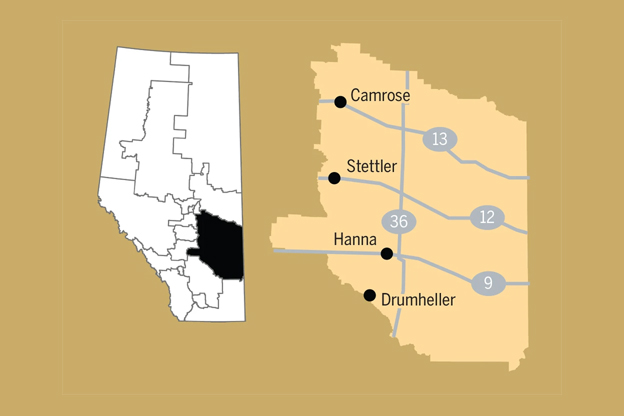
 Alberta14 hours ago
Alberta14 hours agoPierre Poilievre will run to represent Camrose, Stettler, Hanna, and Drumheller in Central Alberta by-election
-

 COVID-1922 hours ago
COVID-1922 hours agoTulsi Gabbard says US funded ‘gain-of-function’ research at Wuhan lab at heart of COVID ‘leak’



